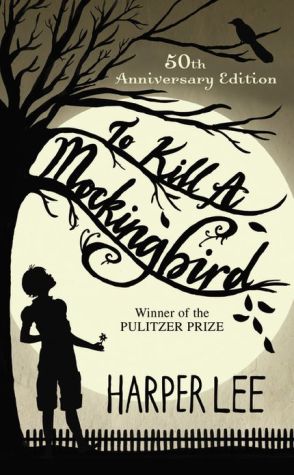Hope Was Here
A Newbery Honor Book Joan Bauer's beloved Newbery Honor book--now with a great new look for middle grade readers! When Hope and her aunt move to small-town Wisconsin to take over the local diner, Hope's not sure what to expect. But what they find is that the owner, G.T., isn't quite ready to give up yet--in fact, he's decided to run for mayor against a corrupt candidate. And as Hope starts to make her place at the diner, she also finds herself caught up in G.T.'s campaign--particularly his...
Search in google:
Readers fell in love with teenage waitress Hope Yancey when Joan Bauer's Newbery Honor—winning novel was published ten years ago. Now, with a terrific new jacket and note from the author, Hope's story will inspire a new group of teen readers.Publishers WeeklyBauer (Rules of the Road; Squashed) serves up agreeable fare in this tale of a teenage waitress's search for a sense of belonging. Sixteen-year-old Hope has grown used to the nomadic life she has built with her aunt Addie, a talented diner cook. She doesn't mind the hard work it takes to make a diner hum; she seems to have inherited a knack for waiting tables from the free-spirit mom (Addie's younger sister) who abandoned her years ago. But Hope would gladly give up always having to say good-bye to friends and places she loves. When Addie accepts a new job that takes the pair from Brooklyn to the Welcome Stairways diner in Mulhoney, Wis., Hope never could have imagined the big changes ahead of her. She and Addie shine in the small-town milieu and gladly offer to help diner owner G.T. Stoop, who is battling leukemia, run for mayor. Along the way, Addie and Hope both find love, and Hope discovers the father figure she has so desperately wanted. Readers will recognize many of Bauer's hallmarks here--a strong female protagonist on the road to self-discovery, quirky characters, dysfunctional families, a swiftly moving story, moments of bright humor. Her vivid prose, often rich in metaphor (e.g., Hope's description of the Brooklyn diner: "The big, oval counter... sat in the middle of the place like the center ring in a circus"), brings Hope's surroundings and her emotions to life. The author resolves a few of her plot points a bit too tidily, but her fans won't mind. They're likely to gobble this up like so much comfort food. Ages 12-up. (Oct.) Copyright 2000 Cahners Business Information.\|
\ From Barnes & NobleOur Review\ What happens when a saucy, optimistic teenager and a terrific short-order diner cook head to Mulhoney, Wisconsin? Great apple pie, a killer mayoral election, and a heartfelt story about life in a rural town. \ Readers will immediately fall in love with 16-year-old Hope. She has bounced from place to place, serving plates of meat loaf and frittata specials to diner patrons cooked up by her aunt Addie, with whom she lives. Since changing her name from Tulip to Hope, this protagonist always tries to live up to her name, offering readers an uplifting look at politics, love, friendship, and, literally, life, as a waitress at G. T. Stoop's Welcome Stairways diner.\ G. T., who is battling leukemia, decides to run for mayor of the town, so his diner, which is perpetually crowded with customers, becomes a hotbed of political activity. It is there that Hope shines as she runs around refilling coffee mugs, soothing customers whose orders have been screwed up, and fielding questions from curious voters. And it is in this small town's diner that she finds what has been missing from her life.\ Hope experiences love for the first time with junior short-order cook Braverman. Unlike the brainless relationships found in the Sweet Valley High series, this relationship is more in tune with first romances that real teenagers experience. At first they banter back and forth, but Braverman's winning pork-chop sandwich and his deep compassion for Hope when her mother comes to visit culminate in a passionate relationship built on friendship and trust.\ This friendship and trust is also at the heart of G. T.'s mayoral battle. Hope and Braverman, among others, rally together, fighting initially to get G. T.'s name on the ballot and later on, as the corrupt incumbent mayor will do anything (planting a mouse in an entrée at G. T.'s diner) and everything (having Braverman beat up because he is involved in the campaign) to get reelected. And just when the politics get really dirty, Hope Was Here gives readers a reason to believe in the political system.\ An underlying thread in Hope Was Here is Hope's secret desire to one day meet her estranged father. While her father never does appear in Hope Was Here, she does get the next best thing -- a father figure in G. T. She fosters a relationship with G. T., who praises her waitress skills and serves as an inspiration to not only Hope, but also all of the people in the town. At one point, the two are strolling outside in back of the diner and looking at the trees that G. T. has planted. G. T. says, "I like thinking [the trees will] be here long after I'm gone. All those fine memories pushing up to the sky."\ To which Hope replies, "I hope you're here for the longest time possible, G. T."\ It is at that moment, Hope gains a father and a home in this rural town she thought she would loathe. Once accustomed to writing "Hope was here" on an old window ledge or on a wall before she departed from one of the countless places she lived, Hope, as well as her aunt Addie, form roots in this town of good people and finally stay put. Hope Was Here offers a refreshing outlook on being a teenager and gives readers a little hope of their own.\ --Soozan Baxter\ \ \ \ \ \ Publishers WeeklyOf this tale of a 16-year-old waitress who searches for a sense of belonging, PW said that the prose, "often rich in metaphor, brings Hope's surroundings and her emotions to life. Readers are likely to gobble this up like so much comfort food." Ages 10-14. (May) Copyright 2002 Cahners Business Information.\ \ \ Publishers Weekly\ - Publisher's Weekly\ Bauer (Rules of the Road; Squashed) serves up agreeable fare in this tale of a teenage waitress's search for a sense of belonging. Sixteen-year-old Hope has grown used to the nomadic life she has built with her aunt Addie, a talented diner cook. She doesn't mind the hard work it takes to make a diner hum; she seems to have inherited a knack for waiting tables from the free-spirit mom (Addie's younger sister) who abandoned her years ago. But Hope would gladly give up always having to say good-bye to friends and places she loves. When Addie accepts a new job that takes the pair from Brooklyn to the Welcome Stairways diner in Mulhoney, Wis., Hope never could have imagined the big changes ahead of her. She and Addie shine in the small-town milieu and gladly offer to help diner owner G.T. Stoop, who is battling leukemia, run for mayor. Along the way, Addie and Hope both find love, and Hope discovers the father figure she has so desperately wanted. Readers will recognize many of Bauer's hallmarks here--a strong female protagonist on the road to self-discovery, quirky characters, dysfunctional families, a swiftly moving story, moments of bright humor. Her vivid prose, often rich in metaphor (e.g., Hope's description of the Brooklyn diner: "The big, oval counter... sat in the middle of the place like the center ring in a circus"), brings Hope's surroundings and her emotions to life. The author resolves a few of her plot points a bit too tidily, but her fans won't mind. They're likely to gobble this up like so much comfort food. Ages 12-up. (Oct.) Copyright 2000 Cahners Business Information.\|\ \ \ \ \ From The CriticsMoving from New York City to a small town in Wisconsin is the latest in a long string of disappointments for Hope. Abandoned by her mother and pining for the father she has never met, Hope yearns to stay in one place, but more importantly, to belong. Aunt Addie provides stability in Hope's life, but it is Hope's own sense of humor, her ability to relate to people, and her considerable skills as a waitress that forge her a place as an important citizen of Mulhoney, Wisconsin. In the process, Hope discovers integrity, romance, and a resolution to dreams she has long carried in her heart. Joan Bauer excels in using humor to address serious issues such as responsibility, political double-dealing and acceptance. Hope Was Here also offers a central character who, while plagued with adolescent insecurities, remains strong. This book is particularly recommended for the way it shows young people performing competently outside of school, at work, and in politics. Genre: Coming of Age/Relationships 2000, G. P. Putnam's Sons, 186 pp., $16.99. Ages 12 up. Reviewer: Beverly J. Jackson; Columbia, South Carolina\ \ \ \ \ Children's LiteratureSixteen year old Hope (formerly called Tulip) knows all about survival, but the latest move she must make with her aunt Addie is calculated to test even her resilience. In Wisconsin, the Welcome Stairways diner awaits Hope, as does its owner, G.T.Stoop, and a cast of characters both noble and nefarious. Hope's is a fresh young voice, and her story is about finding trust in the middle of corruption, optimism in the mayhem of smalltown politics, and faith, above all, in the power of the spirit. Which is good, because when she comes to face the reality of loss, Hope is going to need all the spirit she has and then some. Bauer creates a believable world in this crisplytold tale. 2000, Putnam, Ages 12 up, $16.99. Reviewer: Uma Krishnaswami\ \ \ \ \ VOYAHope moves from Brooklyn to a small town in Wisconsin with her Aunt Addie, a diner cook. Hope's mother left her as a baby, and since that time, Hope and Addie have moved from town to town and diner to diner. At sixteen years old, Hope is a great waitress but is not excited about her new small-town life and job. Soon after they arrive, their employer, G. T., announces that he is running for mayor although he has leukemia. As Hope adjusts to the new place, she and the tall cook, Braverman, become friends, and soon they are a main force in the fight to elect trustworthy G. T. over his corrupt incumbent opponent. Hope fights some personal battles as well, as she deals with not knowing her father, missing city life, and feeling ignored by her mother when she visits. Bauer has succeeded in creating another quirky, poignant, and funny novel about a strong girl who admits her frailties. Hope lives up to her name in the face of loss, of which she has been handed her fair share. Some great waitressing advice is thrown in, and anyone who appreciates the power of a good meal will smile at the comfort-food references. Although the message against corruption gets somewhat heavy-handed, politically minded readers will enjoy the election story line. Her relationship with Braverman—"sometimes I think he likes me and other times I don't think he does and I'm finding the whole thing really irritating"—reveals complexities beyond a typical teen romance. Hope's story is highly recommended for both middle and high school students. VOYA CODES: 4Q 4P J S (Better than most, marred only by occasional lapses; Broad general YA appeal; Junior High, defined as grades 7 to 9; Senior High, defined as grades 10 to12). 2000, Penguin Putnam, 192p. Ages 13 to 18. Reviewer: Julie Wilde VOYA, February 2001 (Vol. 23, No.6)\ \ \ \ \ From The CriticsJoan Bauer's Hope Was Here is a triumph of wit, word, structure, and character. Her heroine is Hope, a sixteen-year-old who was deserted by her mother at birth, doesn't know who her father is, and has been moved around the country by her Aunt Addie, an obsessive chef who is wise in more than matters of food. Hope is no whiner and she sees the positive partly because of Addie's influence. Since the time Hope was little, Addie's had her keep a "Best of Mom" book which holds hints, gleaned from her mother's years of waitressing and living. Hope has picked up these practical tips from the few times her mother has visited, and they have added to Hope's perspective and success. Hope's mom has told her, for example, "three hard and fast rules that every professional waitress has to follow: 1) The customer is always right 2) The cook is always right 3) If the customer and the cook disagree, and you can't settle it, your tip is history." These concepts and her own waitress experiences have informed Hope's life. She is a keen and thoughtful observer. Hope's narration simmers with humor-filled restaurant-speak. She sees a morning go down "like cold rolls with a hot meal" and food imagery even creeps into "an excellent kiss—the kind where you feel your stomach burn hot and you know it's not from indigestion." Hope finds strength in serving and expresses this in culinary vernacular. "When you can carry five full dinner platters on your left arm, you should be able to vote, even if you're not eighteen." And at the bittersweet ending, "joy and sadness mix together like cream in coffee." There's another side of Hope that's more serious. She's kept scrapbooks her entire life, filling them withmementos that she hopes to share with her father, if he ever shows up. And every time she leaves a place, she scribbles "HOPE WAS HERE" on something permanent. At the book's beginning, Hope and Addie are moving to a small town in Wisconsin to manage G.T. Stoop's diner while he deals with his leukemia. Hope's still smarting over the way their last cooking colleague stole their money, trust, and business, but moving has become part of her way of life, and she knows that she's always found friends. The new cast of characters she meets is amazing. It's not just the daily traffic of the restaurant, though the cameos are as rich as one of Addie's good gravies. Nor is it the staff who brings Hope's life and the book the depth of a bottomless cup of coffee. The story's most powerful character may be G.T. Stoop, who balances Hope's lights and darks like a well-planned meal. He is unlike any man Hope has ever met, and before long, she's immersed in helping him win a election against a dishonest politician. Stoop's potential death creates a bond between him and Hope, who has a profound understanding of the transitory nature of life. Commemorating is as important to G.T as it is to Hope. He plants trees to remember those he loves. "I like thinking they'll be here long after I'm gone. All those fine memories pushing up to the sky." By the book's end, Addie's married G.T., he's won the election and adopted Hope, and she shows him the scrapbooks she's assembled throughout her life. When G.T. opts for the long version and listens attentively, Hope tells him, "You're as real and true a father as a human being will get in this world." Ironically, though Hope loses G.T. at the book's final chapter, her future seems more certain and meaningful than ever before. 2000, Putnam, $16.99. Ages 12 up. Reviewer: Susie Wilde — The Five Owls, March/April 2001 (Vol. 15 No. 4)\ \ \ \ \ KLIATTSixteen-year-old Hope is "trying to live up to her name," even though she is deeply upset that she and the aunt who has raised her are moving to small-town Wisconsin from exciting New York City. Her aunt Addie is going to be the manager and cook of a diner; the owner has leukemia and needs help. Hope will be working at the diner too, and she is proud of her skills: "I took to waitressing like a hungry trucker tackles a T-bone," she says. Hope gets involved in town politics when the diner's owner, kind and honest G.T. Stoop, decides to run for mayor against the corrupt incumbent. With the help of the attractive young short-order cook, Braverman, Hope and other teenagers in the town work on G. T.'s campaign, and see it finally succeed despite the odds. Aunt Addie and G.T. marry, and Hope finds in him the father she has always sought, only to lose him to cancer at last. At the end, she's ready to move on to college, but feels like she has finally found a real home in Wisconsin. As in her acclaimed Rules of the Road, Bauer here tells the story of a smart, funny, strong-minded teenage girl overcoming obstacles to achieve fulfillment, and standing up for what's right. Hope is admirably determined to be upbeat (she changed her name from Tulip), despite her mother's abandonment, her lack of a father, and the many moves in her life, and readers will root for her to succeed. The other quirky characters in the novel are also well drawn, from food-obsessed Addie to brave Braverman to G. T. and his graveyard humor. I like how Bauer's teenage characters enjoy their jobs, and take them seriously, too. There's lots of hard-won wisdom here, a bit of romance, and many funny scenes as well as some sadones. This is a wonderful read. KLIATT Codes: JS*—Exceptional book, recommended for junior and senior high school students. 2000, Penguin Putnam, 186p, 00-38232, $16.99. Ages 13 to 18. Reviewer: Paula Rohrlick; January 2001 (Vol. 35 No. 1)\ \ \ \ \ School Library JournalGr 7 Up-Joan Bauer's story (Putnam, 2000) of 16-year-old Hope Yancey's discovery of fatherly love, romance, community, and her own inner resources comes to life in actress Jenna Lamia's youthful reading. Hope, raised by her peripatetic diner cook Aunt Addie since her mother deserted her at birth, changed her own name from the regrettable Tulip to the perfectly apropos Hope when she was 12. Now Hope and her aunt have moved once again, this time to a small Wisconsin town where the local diner owner is fighting leukemia and, upon their arrival, takes on dirty politics as well. Like Bauer's other heroines, Hope is both strong and a bit uncertain, her story tinted with good humor and touched by pathos. Hope slowly comes to accept the small Wisconsin town as home, other diner staff as family, and the owner as the father she might have had. Braverman, the cook's assistant, makes a perfect first boyfriend, being neither weaker than Hope nor less sensitive. Lamia voices these characters perfectly as they discuss the menu specials, civic corruption, and the inevitable resurgence of cancer in G. T. Stoop's blood. Bauer's story is a delight, and this audio presentation enhances it.-Francisca Goldsmith, Berkeley Public Library, CA Copyright 2003 Reed Business Information.\ \ \ \ \ Kirkus ReviewsAnother entry in Bauer's growing collection of books about likable and appealing female teenagers with a strong vocational calling. Ivy Breedlove in Backwater (1999) is a historian, Jenna Boller in Rules of the Road (1998) is a talented salesperson, and Hope Yancey's gift is for waitressing. As the novel begins, Hope, 16, and her aunt Addie are about to move from Brooklyn to Mulhoney, Wisconsin, where Addie will manage and cook for a diner called the Welcome Stairways. Hope, whose mother abandoned her as an infant and who has never known her father, is pretty welladjusted, all things considered. She throws herself into her new life in the small town, working on the grassroots mayoral campaign of the diner's owner, quickly acquiring a boyfriend and friends, and proving herself to be a stellar waitress (she's been working in restaurants most of her life, after all, and one of the few things her mother has given her is a list of waitressing tips). Despite having moved so often and having had such inadequate biological parents, Hope isn't afraid to connect to people. The relationship between Hope and G.T., the man who owns the diner and who eventually marries her aunt is especially touching and sweetly portrayed. He's everything Hope ever wished for in a father. It could be said that the occupation of waitressing is overidealized; it's portrayed as the noblest of professions. But the lessons she's learned from the job are essential to Hope's character and a part of why the plot develops as it does. More important, and as always from Bauer, this novel is full of humor, starring a strong and idealistic protagonist, packed with funny lines, and peopledwithinteresting and quirky characters. (Fiction. 1116)\ \








